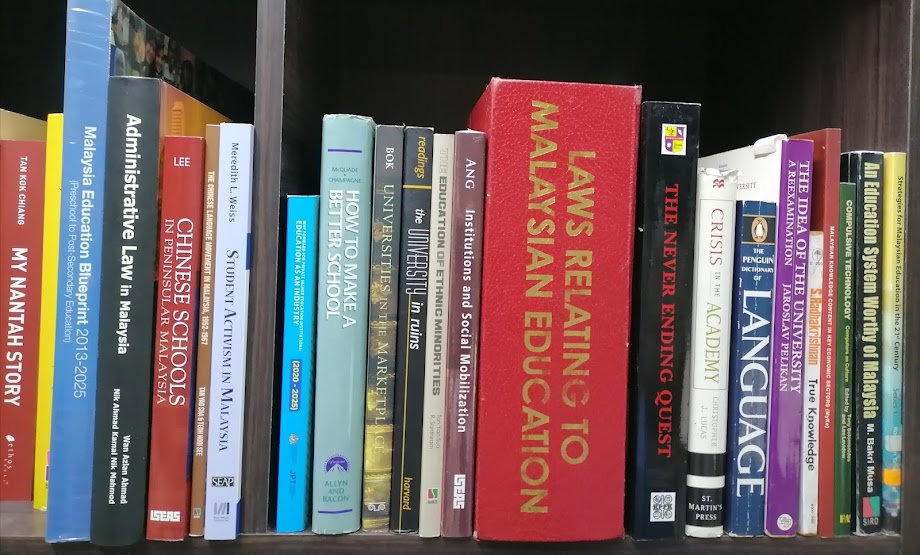Despite claims that they were intended to empower students, the recent amendments to AUKU (Universities and University Colleges Act 1971) which the Dewan Rakyat recently passed, make no significant changes to the rights of students in public universities.
The focus of the change is on the student disciplinary
provisions of the principal Act dealing with the collection of money by students
or student bodies. Before the amendment,
section 15A of the Act prohibited students or student bodies in a university
from collecting money or other property from anyone. However, under those
provisions, the Vice Chancellor of the University could, if he thought fit,
exempt students from the statutory prohibition.
The amendment changes the words of the old section 15A by
providing that a Students’ Representative Council of the University or any
student body of the University may, subject to any written law, make, organise,
or take part in any collection of money or receive money or any other
contributions from any person or body of persons.
The new section 15A does not give students an unconditional
right to collect or receive money. The right must be exercised in compliance
with any regulations that the University Board may lay down. Thus, whereas
under the original provisions, the Vice Chancellor could exempt students from
the prohibition in the old section 15A, under the new section 15A, the right to
collect money is subject to regulations that the University Board may prescribe.
This means that the extent of the new statutory right can
only be established once the University Boards begin to lay down the terms upon
which the students may exercise the right. Since the Act does not qualify the
discretionary power of the Board to make regulations on the matter, it may well
be that the ensuing regulations of the Board will simply revert to the position
before the amendment.
The recent amendment may have its origins in one of the
eleven New Year's resolutions announced by the previous Minister of Higher
Education, Dato Seri Khaled Nordin when he took up his portfolio in early 2023.
The previous Minister's eleventh resolution focused on student empowerment,
which involved giving students more responsibility and decision-making
opportunities within what the Minister said was a broader context of student
rights. The Minister was concerned that students were increasingly living and
interacting in virtual and digital environments, taking them away from the
campus environment. To address this issue, the Minister proposed to allow
students to govern campus life themselves, which according to his resolution would
involve managing student unions and small businesses such as bookshops,
cafeterias, and pharmacies. The Minister proposed that the earnings from these
activities could be used to support student activities.
The current Minister of Higher Education, Dato' Seri Diraja
Dr Zambry Abd Kadir also spoke about students in higher education in his
inaugural speech at Universiti Malaya on 12 January 2024 (Landasan Hala Tuju Kementerian
Pendidikan Tinggi 2024). The Minister’s focus was not on student empowerment
but on the ‘shaping of minds and characters’ and making higher education a
platform for "human transformation" and "culture building"
to propel the country into becoming an advanced nation.
Regardless of the origins of the amendment to the Act, the
notion that student empowerment merely revolves around the right to raise funds
and conduct business activities on campus reflects a profound misunderstanding
on the part of the authorities about what student empowerment really means.
Student empowerment within the campus must involve fostering
an environment where students feel valued, respected, and empowered to voice
their opinions, advocate for their needs, and contribute meaningfully to
shaping their educational experiences. It involves fostering a culture of
inclusivity, collaboration, and shared governance where students are recognised
as integral stakeholders in the university community.
Beyond the campus, it means empowering them to become
proactive members of society, capable of effecting positive change and
contributing to the betterment of their communities. It's about instilling in
students the confidence, skills, and sense of responsibility needed to prepare
them to become informed, engaged citizens and leaders in their respective
fields.
The amendment introduced by the Act focuses only on
students' right to raise funds while overlooking other issues, such as
restrictions in the UUCA and the university disciplinary rules that are
contrary to the spirit of academic freedom and violate principles of free
speech and assembly.
Genuine student empowerment entails recognising and
respecting the diverse voices, perspectives, and aspirations within the student
body, rather than simply delegating financial responsibilities without
addressing the underlying structural barriers and power dynamics that hinder
free speech and assembly within the campus.

